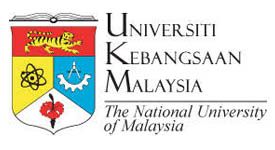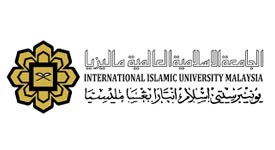Botany Course in Malaysia : Complete Guide for International Students

- Home
- Specialization
- Botany
Overview
Study botany in Malaysia offers students a comprehensive education in plant sciences, preparing them for careers in agriculture, environmental management, and research. Botany courses in Malaysia are offered at undergraduate and postgraduate levels, with affordable tuition fees compared to other countries. Top-ranked universities like the University of Malaya, Universiti Putra Malaysia, and Universiti Kebangsaan Malaysia offer world-class botany programs, recognized globally for their research and academic excellence.
International students from various countries, including Indonesia, India, and Pakistan, choose Malaysia for its high-quality education and multicultural environment. Graduates from a botany course in Malaysia can expect competitive salaries, with job opportunities in both the public and private sectors. Pursuing a botany degree in Malaysia provides students with hands-on experience and access to Malaysia's rich biodiversity, making it an ideal choice for those passionate about plant sciences and environmental conservation.
Why Study botany course in Malaysia
Studying botany in Malaysia provides students with a unique educational experience, combining world-class facilities with Malaysia's rich natural biodiversity. Many universities, such as the University of Malaya (Kuala Lumpur), Universiti Putra Malaysia (Selangor), and Universiti Kebangsaan Malaysia (Selangor), offer highly regarded botany courses in Malaysia. These universities are well-equipped with modern research facilities, and their botany programs are recognized globally for academic excellence and research in plant sciences.
A major reason to study botany in Malaysia is the country's tropical ecosystem, which allows students to engage in hands-on research and field studies in a diverse environment. This practical exposure is crucial for careers in agriculture, environmental science, and biotechnology. Additionally, international students find studying in Malaysia to be affordable, with a relatively low cost of living and accessible tuition fees.
English is the medium of instruction in most Malaysian universities, and international applicants are generally required to demonstrate English proficiency through exams like IELTS or TOEFL. This requirement ensures students are prepared for academic success in a botany course in Malaysia. With globally recognized degrees and a multicultural campus environment, Malaysia is an ideal destination for those passionate about studying plant sciences.
International Students Studying Botany Course in Malaysia
Malaysia has become an increasingly popular destination for international students looking to study botany in Malaysia due to its biodiversity, research opportunities, and reputable educational institutions. Botany courses in Malaysia are offered at various levels, from undergraduate to PhD, allowing students to explore the intricate science of plants, ecosystems, and environmental conservation.
For international students, studying a botany course in Malaysia offers the advantage of access to diverse tropical flora, enabling hands-on research in one of the world’s most ecologically rich environments. Malaysian universities are well-equipped with modern labs, experienced faculty, and strong research programs, allowing students to gain in-depth knowledge in fields like plant biology, biotechnology, and conservation.
Malaysia is also known for its welcoming attitude toward international students, providing English-taught programs, reasonable tuition fees, and a relatively low cost of living. Many institutions assist with the student visa application process, making it easier for international students to begin their academic journey.
The multicultural environment in Malaysia enhances the overall experience, as students from around the world come together to study botany in Malaysia, broadening perspectives and fostering international collaboration. The growing demand for botany graduates also presents good career prospects, especially for those interested in environmental science, research, and sustainability initiatives.
Living Cost to Study Botany Course in Malaysia
| Expense Category | Estimated Monthly Cost (MYR) | Description |
|---|---|---|
| Accommodation | 400 - 1,500 | Options include on-campus dormitories (MYR 400-700) and off-campus apartments (MYR 800-1,500), depending on location and amenities. |
| Food | 400 - 800 | Meals at local eateries cost around MYR 10-20 per meal, while monthly grocery expenses range from MYR 200-400. |
| Transportation | 50 - 150 | Public transport, including buses and trains, costs approximately MYR 1-5 per trip. Monthly student discounts may be available. |
| Wi-Fi/Internet | 80 - 150 | High-speed internet in shared accommodations or personal setups typically costs between MYR 80-150 per month. |
Comparison of Botany Courses in Malaysia vs. the US and UK
| Category | Malaysia | United States | United Kingdom |
|---|---|---|---|
| Annual Tuition Fees | $4,000 - $10,000 | $20,000 - $50,000 | $15,000 - $40,000 |
| Accommodation (Monthly) | $85 - $320 | $700 - $1,500 | $600 - $1,200 |
| Food (Monthly) | $85 - $170 | $250 - $500 | $200 - $400 |
| Transportation (Monthly) | $11 - $32 | $60 - $120 | $70 - $150 |

List of Botany Universities in Malaysia with courses

Courses:
208World Rank:
138Scholarship: Yes
208- University of Malaya (UM) - Kuala Lumpur
- Universiti Putra Malaysia (UPM) - Selangor
- Universiti Kebangsaan Malaysia (UKM) - Bangi, Selangor
- Universiti Sains Malaysia (USM) - Penang
- Universiti Malaysia Sabah (UMS) - Kota Kinabalu, Sabah
- Universiti Teknologi MARA (UiTM) - Various campuses, main campus in Shah Alam
- Universiti Malaysia Sarawak (UNIMAS) - Kota Samarahan, Sarawak
Diploma in Botany
- The diploma in botany is an entry-level program that introduces students to the fundamentals of plant science, covering topics such as plant biology, ecology, and conservation. This course is typically two to three years long and prepares students with the essential skills needed for entry-level roles in agriculture, horticulture, and environmental conservation. A diploma also provides a stepping stone for those who wish to continue into a bachelor’s degree in botany or a related field.
Undergraduate Degree (Bachelors in Botany or Plant Science)
- A bachelor’s degree in botany is a comprehensive program, usually lasting three to four years, designed to provide in-depth knowledge of plant biology, physiology, genetics, ecology, and biotechnology. Students in this program gain hands-on experience through lab work, field studies, and research projects, which are essential for understanding plant life and ecosystems. This level prepares graduates for professional roles in environmental consultancy, agricultural management, conservation, and botanical research. Malaysia's tropical biodiversity offers a unique setting for practical training, making it ideal for students pursuing botany.
Postgraduate Degree (Master’s in Botany or Related Fields)
- The master's degree in botany or a related field is a specialized program that allows students to delve deeper into specific areas of plant science, such as plant biotechnology, environmental management, and sustainable agriculture. This program usually lasts one to two years and involves intensive coursework, research projects, and often a thesis. Graduates with a master’s degree are equipped for advanced roles in research, environmental policy, and agricultural technology. Malaysia’s focus on sustainable development offers various research opportunities, making it appealing to students who want to advance their expertise and engage in impactful studies.
PhD in Botany
- A PhD in botany is the highest level of academic study, focused on original research and scientific innovation. Typically spanning three to five years, this program is designed for students who want to contribute to scientific advancements in botany and plant sciences. PhD candidates undertake in-depth research projects and publish findings in academic journals, helping to address global challenges like food security, climate change, and biodiversity loss. PhD graduates often pursue careers in academia, research institutions, government agencies, and NGOs, where they play a key role in shaping the future of plant science.
Diploma in Botany in Malaysia
Overview
- A diploma in botany in Malaysia offers an introductory understanding of plant sciences, covering topics like plant biology, ecology, and environmental science.
- Ideal for students who wish to study botany in Malaysia with a practical, career-focused approach.
- Duration: Typically 2-3 years, combining classroom learning with lab and field experience.
Intakes
- Most Malaysian universities and colleges have intakes in January, May, and September for botany diploma programs.
- Students are encouraged to check specific intake dates at each institution, as they may vary slightly.
Entry Requirements
- Academic Qualification: Completion of SPM (Malaysian Certificate of Education) or an equivalent high school qualification.
- Minimum Grades: Generally a pass in science subjects, such as biology and chemistry.
- English Proficiency: For international students, IELTS or TOEFL scores may be required to demonstrate English proficiency.
Tuition Fee
- Tuition fees for a botany course in Malaysia at the diploma level range from MYR 10,000 to MYR 20,000 per year, depending on the institution.
- Scholarships and financial aid may be available for eligible students.
Job Opportunities for Diploma Holders
Graduates with a diploma in botany can pursue a variety of careers across different industries, particularly in agriculture, environmental science, research, and conservation. Some potential job roles include:
Agricultural Technician
- Work with farmers and agricultural businesses to implement sustainable farming practices, conduct plant health assessments, and manage crops.
Nursery Manager
- Oversee plant production in nurseries, including plant propagation, care, and sales of ornamental or agricultural plants.
Environmental Conservation Assistant
- Assist in environmental projects, focusing on biodiversity conservation, habitat restoration, and environmental education.
Research Assistant in Botanical Research Labs
- Support research projects in universities or research institutions, conducting experiments and collecting data on plant growth, genetics, and biotechnology.
Horticulturist
- Specialize in growing and maintaining plants for aesthetic, scientific, or commercial purposes in gardens, parks, or greenhouses.
Ecological Field Technician
- Collect and analyze field data on plant species, environmental impacts, and ecosystems, often working in natural reserves or national parks.
Plant Pathologist Assistant
- Assist in identifying plant diseases and pests, providing solutions to protect crops and ensuring healthy plant development.
Bachelor in Botany in Malaysia
Overview
- A Bachelor in Botany in Malaysia offers an in-depth understanding of plant sciences, including plant biology, ecology, genetics, and biotechnology.
- The program is designed for students who wish to specialize in plant-related research, conservation, and agriculture.
- Duration: Typically 3-4 years, with a balance of theoretical coursework, practical labs, and fieldwork, making it an excellent choice for those wanting to study botany in Malaysia.
Intakes
- Most universities offering a botany course in Malaysia have intakes in March, June, and September.
- Students are advised to check specific universities for exact intake dates, as they may vary by institution.
Entry Requirements
- Academic Qualification: Completion of higher secondary education (STPM, A-Levels, or an equivalent qualification).
- Minimum Grades: A good grade in relevant subjects, including biology, chemistry, and physics (or equivalents).
- English Proficiency: For international students, an IELTS or TOEFL score may be required to demonstrate English proficiency.
Tuition Fee
- The tuition fees for a botany course in Malaysia at the bachelor's level typically range from MYR 18,000 to MYR 40,000 per year, depending on the institution and program.
- Scholarships and financial aid may be available, and some universities offer discounts for early application.
Job Opportunities for Bachelor’s Holders in Botany
Graduates with a Bachelor in Botany have a wide range of career opportunities in various sectors:
- Plant Scientist/Researcher
Conduct research on plant biology, genetics, and plant-based solutions for agriculture, pharmaceuticals, and biotechnology.
- Environmental Consultant
Advise organizations on environmental sustainability, conservation practices, and natural resource management.
- Agricultural Manager
Work in agriculture-related industries to optimize crop production, manage farms, or promote sustainable farming practices.
- Conservation Officer
Work with government agencies or NGOs to protect and restore natural habitats, focusing on plant biodiversity and ecosystem conservation.
- Biotech Researcher
Involved in developing genetically modified crops, biopesticides, and plant-based pharmaceuticals.
- Ecologist
Study the relationships between plants, animals, and their environments, contributing to conservation efforts and environmental impact assessments.
- Horticulturist
Specialize in plant care, design, and maintenance in various settings, such as botanical gardens, parks, and public spaces.
- Plant Breeder
Work in agricultural research to develop new plant varieties with improved yield, disease resistance, or climate tolerance.
- Sustainability Officer in Agriculture
Implement and manage sustainability initiatives in agricultural operations, focusing on eco-friendly farming practices.
Master’s in Botany in Malaysia
Overview
- A Master’s in Botany in Malaysia offers advanced education in plant sciences, focusing on specialized areas like plant ecology, plant biotechnology, genetics, and environmental conservation.
- The program is designed for students who have completed an undergraduate degree in botany or related fields and wish to further their knowledge through research and practical experience.
- Duration: Typically 1-2 years, combining coursework with research projects and thesis work, providing a strong foundation for those looking to study botany in Malaysia at an advanced level.
Intakes
- Most Malaysian universities offering a botany course in Malaysia have intakes in March, May, and September.
- Students are encouraged to check the specific intake dates of each institution for more details.
Entry Requirements
- Academic Qualification: A Bachelor's degree in Botany, Plant Science, or a related field from a recognized institution.
- Minimum GPA: A good academic standing, typically a minimum GPA of 2.75-3.00 on a 4.0 scale (requirements vary by university).
- English Proficiency: For international students, proof of English language proficiency through exams like IELTS or TOEFL is required.
Tuition Fee
- The tuition fees for a Master’s in Botany in Malaysia generally range from MYR 20,000 to MYR 40,000 per year, depending on the institution and the specific program.
- Scholarships and financial aid options may be available for eligible students.
Job Opportunities for Master’s Holders
Graduates with a Master’s in Botany in Malaysia have excellent career opportunities in specialized roles in research, conservation, agriculture, and biotechnology. Some potential job positions include:
- Research Scientist
Conduct cutting-edge research in plant biology, ecology, or genetics, often in universities, government research agencies, or private companies.
- Botany Lecturer/Professor
Teach at universities and colleges, delivering botany and plant science courses, while contributing to academic research in the field.
- Environmental Consultant
Advise organizations on sustainability practices, conservation strategies, and plant biodiversity management.
- Biotechnology Researcher
Work in the biotech industry to develop plant-based technologies, such as genetically modified crops or plant-based medicines.
- Plant Ecologist
Study the interactions between plants and their environment, contributing to conservation and restoration projects.
- Agricultural Researcher
Conduct research to improve crop production, develop sustainable farming methods, and address challenges in agriculture, such as climate change.
- Conservation Manager
Oversee the management of natural reserves, parks, or botanical gardens, working to protect plant species and biodiversity.
- Pharmaceutical Botanist
Work in the pharmaceutical industry to research plant-based compounds for medicinal use.
PhD in Botany in Malaysia
Overview
- A PhD in Botany in Malaysia is an advanced research-focused program designed for students aiming to contribute original knowledge to the field of plant sciences.
- The program focuses on specialized research in areas like plant ecology, plant genetics, biotechnology, and conservation.
- Duration: Typically 3-5 years, this program requires the completion of original research and a dissertation, making it ideal for those looking to study botany in Malaysia at the highest academic level.
Intakes
- Most universities offering a botany course in Malaysia for PhD have intakes in March, June, and September.
- Specific intake dates may vary by institution, so it is recommended to check the university’s website for detailed information.
Entry Requirements
- Academic Qualification: A Master’s degree in Botany, Plant Science, or a closely related field from a recognized institution.
- Research Proposal: Candidates are typically required to submit a research proposal outlining their intended area of study, which will be evaluated by the faculty before admission.
- Minimum GPA: A strong academic record from previous degrees, typically with a minimum GPA of 3.00 or higher.
- English Proficiency: For international students, proof of English language proficiency is required, usually via IELTS or TOEFL.
Tuition Fee
- The tuition fees for a PhD in Botany in Malaysia range from MYR 25,000 to MYR 50,000 for the entire duration of the program, depending on the university and specific research focus.
- Many universities offer scholarships and financial assistance to PhD students, reducing the overall cost.
Job Opportunities for PhD Holders
Graduates with a PhD in Botany in Malaysia can pursue high-level academic, research, and professional roles in various sectors, including education, government, industry, and non-profit organizations. Some potential career paths include:
University Professor/Lecturer
Teach botany and plant science courses at universities, while conducting cutting-edge research and publishing in academic journals.
Research Scientist
Lead research projects in plant biology, biotechnology, or environmental science, either in academic institutions, research labs, or private industry.
Environmental Policy Advisor
Advise government bodies, NGOs, and corporations on policies related to plant biodiversity, conservation, and sustainability.
Botanical Garden Curator/Director
Manage botanical gardens or conservation parks, overseeing plant collections, educational programs, and research initiatives.
Senior Biotechnologist
Conduct advanced research and development in the biotechnology sector, particularly in plant-based innovations such as genetically modified organisms (GMOs) or biofuels.
Environmental Consultant
Provide expert advice on environmental impact assessments, biodiversity conservation, and ecosystem restoration projects.
Conservation Researcher
Work in wildlife reserves or conservation organizations to develop strategies for protecting endangered plant species and restoring ecosystems.
The career prospects for botany graduates in Malaysia are promising, as the country continues to develop its agricultural, environmental, and biotechnology sectors. The growth of botany-related jobs in Malaysia is supported by increasing demand for specialists in plant science, environmental conservation, and sustainable agriculture. Botany graduates can find roles as environmental consultants, plant scientists, research biologists, agronomists, and conservation officers.
The salary for botany professionals in Malaysia varies by experience and role. Entry-level positions start at around MYR 30,000–40,000 annually, while experienced professionals and researchers can earn upwards of MYR 70,000 or more. This salary range reflects the demand for skills in environmental sustainability, plant research, and agricultural technology.
Top firms in Malaysia hiring botany professionals include Sime Darby Plantation, Malaysian Palm Oil Board (MPOB), and Genting Plantations. Additionally, research institutions and government agencies focused on environmental and agricultural projects offer rewarding career opportunities. With Malaysia’s rich biodiversity and commitment to sustainable development, botany professionals are well-positioned for career growth in both research and applied sciences.
If you're interested in pursuing a botany course in Malaysia, here’s a step-by-step guide to help you with the application process:
- Research Available Programs
Begin by researching the different botany courses in Malaysia offered by universities. Consider factors such as course content, university reputation, and location to choose the program that best suits your academic goals.
- Check Entry Requirements
Ensure you meet the entry requirements for the botany course. Most programs require a high school diploma (SPM, A-Levels, or equivalent) for undergraduate courses, and a relevant bachelor’s degree for postgraduate programs. Check for subject prerequisites, such as biology or chemistry.
Prepare Your Documents
- Prepare all necessary documents for your application, including:
- Academic transcripts and certificates
- Proof of English language proficiency (e.g., IELTS/TOEFL scores for international students)
- A copy of your passport (for international students)
- Letters of recommendation (if required)
Submit Your Application
Complete the application form for your chosen university’s botany course in Malaysia. Many universities offer online applications, allowing you to submit your documents electronically.
Pay Application Fees
Pay the application fee (if applicable). The amount varies by institution, so check the university's website for details.
Attend an Interview (If Required)
Some universities may require an interview as part of the selection process, especially for postgraduate programs. Prepare to discuss your academic background, research interests, and reasons for pursuing a botany course in Malaysia.
Wait for Admission Decision
After submitting your application, wait for the university’s admission decision. If accepted, you will receive an offer letter outlining the next steps for enrollment.
Accept Offer and Pay Deposit
If you receive an offer, confirm your acceptance and pay the required deposit to secure your place in the program.
Apply for a Student Visa (For International Students)
Once your enrollment is confirmed, international students will need to apply for a student visa to study in Malaysia. The university will typically provide guidance on the visa application process.
Prepare for Arrival
Finalize your travel arrangements, accommodation, and any other necessary preparations before your studies begin. Some universities may offer orientation programs to help you settle in.
Visa Process for Botany Course in Malaysia
If you are an international student planning to study botany in Malaysia, here is a step-by-step guide to help you navigate the visa application process for your botany course in Malaysia:
- Obtain an Offer Letter from a Malaysian University
Ensure you are accepted into a botany course in Malaysia and have received an official offer letter from the university.
Prepare Required Documents
- Gather necessary documents for your visa application, including:
- Valid passport (with at least 6 months remaining)
- University offer letter for the botany in Malaysia program
- Completed visa application form
- Passport-sized photographs
- Academic transcripts and certificates
- Proof of financial support (bank statements or sponsorship letter)
- Proof of English proficiency (IELTS/TOEFL scores, if required)
University Submission of Visa Application
- Your university will act as your sponsor and submit your visa application to the Education Malaysia Global Services (EMGS) or Malaysian Immigration Department on your behalf.
Pay Visa Processing Fees
- Pay any required visa fees, which generally range between MYR 60 to MYR 200. The exact amount may vary by institution.
Medical Examination
- Complete a medical examination, if required, either in your home country or upon arrival in Malaysia, as per EMGS guidelines.
Receive Visa Approval Letter
- After approval by the Malaysian Immigration Department, you will receive a Visa Approval Letter (VAL). This letter allows you to enter Malaysia to complete your registration.
Entry into Malaysia with VAL
- Use the VAL to enter Malaysia. Upon arrival, the university will assist you in obtaining the student pass or visa sticker in your passport, valid for the duration of your botany course in Malaysia.
Immigration Registration
- Register with the Immigration Office within Malaysia to finalize your student pass and complete any additional requirements as specified.
Application timeline
| Timeline | Steps | Description |
|---|---|---|
| 12 Months Before Enrollment |
|
Explore universities offering botany courses in Malaysia and prepare necessary documents, including transcripts and ID proof. |
| 10-8 Months Before Enrollment |
|
Submit applications to universities, pay fees, and draft a statement explaining your interest in studying botany in Malaysia. |
| 6-4 Months Before Enrollment |
|
Accept your offer and start the student visa application process with university assistance. |
| 2-1 Month Before Enrollment |
|
Arrange accommodation and book travel. Confirm orientation and any pre-course events. |
Scholarships for International Students
If you're interested in botany courses in Malaysia, there are numerous scholarship opportunities available to help international students manage the costs of studying abroad. Here are some popular scholarship options to consider when you plan to study botany in Malaysia:
- Malaysian Government Scholarships
The Malaysian government offers various scholarships for international students, such as the Malaysia International Scholarship (MIS), aimed at attracting talented students for postgraduate studies in fields like botany and environmental sciences.
- University-Specific Scholarships
Many Malaysian universities provide scholarships or tuition waivers for international students enrolling in botany courses in Malaysia. Institutions like Universiti Malaya and Universiti Kebangsaan Malaysia offer merit-based scholarships for students who meet specific academic criteria.
- Research Scholarships
Students interested in research-focused botany courses in Malaysia may qualify for scholarships funded by research institutions or grants for projects related to plant sciences, biotechnology, and conservation.
- ASEAN Scholarships
Some scholarships are offered specifically to students from ASEAN countries, supporting regional cooperation. These can be applied toward undergraduate or postgraduate programs in botany courses in Malaysia.










